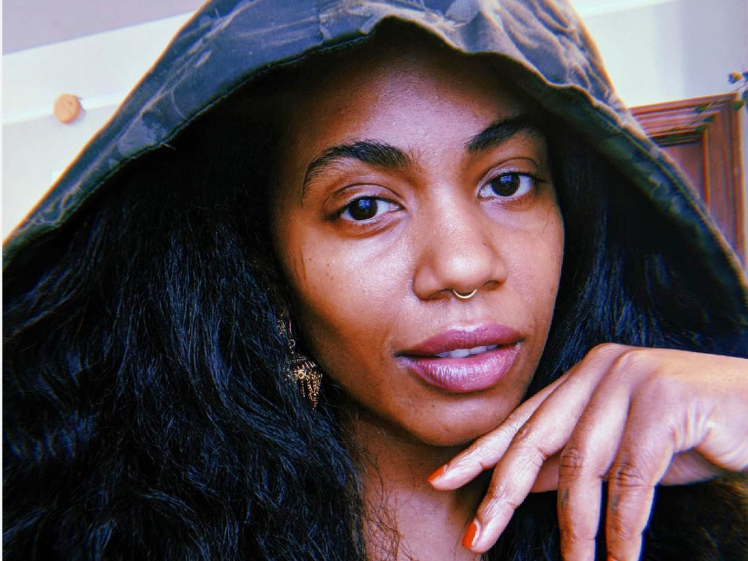Be careful before celebrating the recognition of this non-binary transgender author by The Women’s Prize for Fiction
It’s still not clear whether Emezi’s place on the list is an example of active inclusivity, or a case of the judges not realising their gender identity and then just kind of deciding to run with it


When it was revealed this week that Freshwater, the debut novel of non-binary transgender author Akwaeke Emezi, was one of 16 books longlisted for this year’s Women’s Prize for Fiction, it initially seemed like a positive and inclusive move.
“It is a historic moment,” Professor Kate Williams, chair of the judges, said of Emezi’s place on the longlist. “They are an incredibly talented author and we’re keen to celebrate them.”
The Women’s Prize for Fiction was established in 1996 to recognise female writers, inspired by the 1991 Booker Prize, when none of the six shortlisted books was written by a woman – even though 60 per cent of books published in the preceding year had female authors.
Each year, five women are selected to judge the awards. No transgender woman has ever been a judge or been longlisted, including this year, as far as I can see. That this longlist is the first to include a non-binary transgender author is absolutely a historic moment.
But, as a non-binary trans person myself, uncomfortable questions are raised by Emezi’s inclusion on the longlist and, without wanting to take anything away from their achievement, we must welcome both the representation it gives non-binary people and the opportunity to have a conversation about what that means.
What troubles me most is this: would a non-binary author who was assigned male at birth have been longlisted? I highly doubt it. This ties into a wider problem with media representation of the non-binary community – it often reinforces the harmful stereotype that non-binary people are those who were assigned female at birth, or whose gender expression is feminine.
Demonstrably, at least one of the judges of the prize seems to think along these lines – that being non-binary is kind of like being woman-adjacent. “I backed a gender-fluid writer for a women’s fiction prize,” wrote Arifa Akbar, one of the judges, continuing: “Freshwater is among seven novels out of the 16 written by women of colour.” Except that Emezi is not a woman of colour, and they are not genderfluid – they are a non-binary person of colour.
At a time when representation of the non-binary community in the mainstream media is still painfully limited – outside, of course, of the “debate” by some transphobic, so-called feminists over whether we pose a threat in women-only spaces, like bathrooms – it really is important to try to get it right.
The Women’s Prize website still clearly states that it’s only open to female authors. This is patently untrue at this moment, as a non-binary author entered and was longlisted. This suggests to me either that no one has really thought through the significance of longlisting Emezi – as in, if the prize is indeed now open to non-binary people, it means non-binary people who were assigned male at birth, too – or that the judges don’t fully respect Emezi’s non-binary identity.
When Professor Williams said, “We’re very careful not to google the authors while judging, so we did not know [Emezi’s gender identity],” all I could think was: if the judges, on finishing the longlist, had been confronted with an assigned-male-at-birth non-binary author, would they have remained on that longlist?
While the judges’ gender-blind approach seems well meaning and fair, it’s deeply troubling that another gender has been made eligible for this prize, set up solely for women, without there appearing to have been a process for doing this, or a thought for the consequences. And though it seems the judges had good intentions, it’s not clear who decided that Emezi was eligible for the prize, how it was decided or what the criteria were – whose terms is their inclusion on?
The judges checked that Emezi was happy to be included before announcing the longlist, and more power to them for accepting this recognition of their work. But it’s still not clear whether their place on the list is an example of active inclusivity, or a case of people (the judges; whoever gives the judges the books to read) not realising their gender identity and then just kind of deciding to run with it, on the basis of it being good to look inclusive, once they found out.
It would be nice to think that this means all non-binary authors can, in future years, apply for the Women’s Prize, but until these questions are answered it’s unclear whether that’s the case. And, when it comes to the consequences of the judges’ decision, they are already being felt – just take a look at Emezi’s mentions on Twitter. When the non-binary author is receiving transphobic abuse on the internet while the cisgender judges are being applauded for inclusivity, is this historic moment really such a cause for celebration?

Join our commenting forum
Join thought-provoking conversations, follow other Independent readers and see their replies